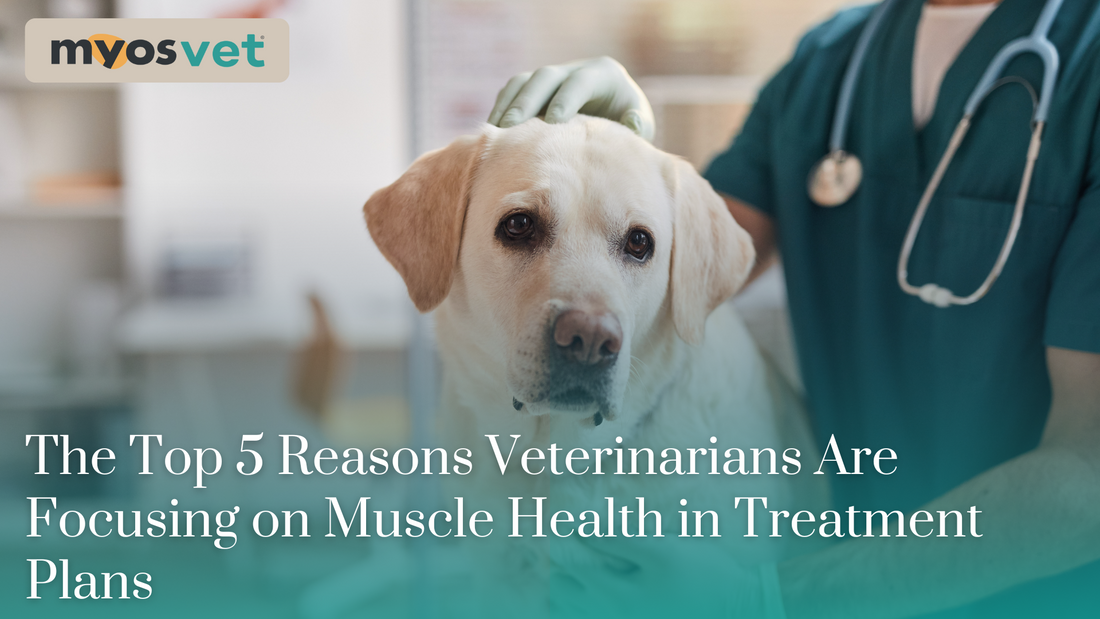
The Top 5 Reasons Veterinarians Are Focusing on Muscle Health in Treatment Plans
Share
Veterinarians are increasingly recognizing the critical role muscle health plays in the overall well-being of their patients. Whether addressing recovery from injury, managing chronic conditions, or supporting aging pets, maintaining and building muscle is becoming a key component of comprehensive veterinary care. Here are the top five reasons muscle health is at the forefront of treatment plans today:
1. Muscle Mass Supports Mobility and Reduces Injury Risk Muscle health is directly tied to a pet’s ability to move, run, and play. Strong muscles provide support to joints, reducing strain and lowering the risk of injuries. In patients with arthritis or orthopedic issues, maintaining muscle mass can improve stability, minimize pain, and extend mobility into their senior years.
2. Faster Recovery Post-Surgery or Injury Surgical procedures and injuries can lead to muscle atrophy due to reduced activity during recovery. Veterinarians are incorporating muscle-building strategies, such as rehabilitation exercises and targeted nutrition, to help speed up the healing process and prevent long-term weakness. Products like MYOS Canine Muscle Formula, containing Fortetropin, have been clinically shown to support muscle growth and recovery.
3. Muscle Health Is Essential for Senior Pet Care As pets age, they naturally lose muscle mass, a condition known as sarcopenia. This loss contributes to frailty, decreased mobility, and an increased risk of falls. Veterinarians are focusing on muscle maintenance through diet, supplements, and exercise regimens to improve the quality of life for senior dogs and cats, helping them remain active and independent longer.
4. Muscle Loss Can Indicate Underlying Health Issues A decline in muscle mass can be an early warning sign of underlying health problems, such as chronic kidney disease, cancer, or metabolic disorders. By monitoring muscle condition, veterinarians can identify potential concerns sooner and implement interventions to slow progression, improving patient outcomes.
5. Improved Overall Health and Immune Function Muscle is more than just a means of movement—it plays a role in metabolism, immune function, and overall vitality. Pets with strong muscles are better equipped to handle stress, illness, and physical exertion. By prioritizing muscle health, veterinarians are supporting not only mobility but also systemic health and longevity.
The Future of Muscle Health in Veterinary Medicine
As research continues to highlight the importance of muscle health, veterinarians are integrating muscle-supportive treatments into their protocols more than ever. With advancements in nutrition, supplementation, and rehabilitation therapies, there are now more tools available to help pets maintain optimal muscle condition throughout their lives.
For veterinary professionals looking to incorporate muscle health into their treatment plans, MYOS Canine Muscle Formula provides a scientifically backed solution to support muscle growth and recovery. Learn more about how MYOS can help your patients thrive by visiting MYOSvet.com.
